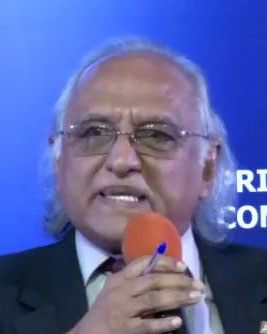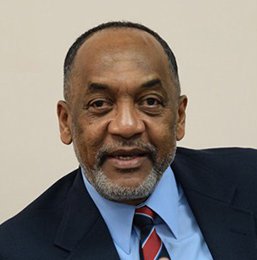Even as government remains silent on the details that led to its selection of Wales on the West Bank of Demerara as the location for the gas-to-shore project, it has announced that bidding for the contract to lay the pipelines, and the construction of the site are to begin this year.
“In 2021, Guyanese can expect to see bidding for the laying of the pipelines and the construction of the landing site,” Minister of Natural Resources, Vickram Bharrat, told the Sunday Stabroek during a telephone interview.
Government’s announcement comes even as heightened calls are being made for the studies and analyses that led to the decision to be made public as well as the response to advice that a detailed environmental impact assessment be done before forging ahead with construction.
Two Saturdays ago, during a Moray House Trust forum on the oil and gas sector here, calls were made by members of civil society that the environment be strongly factored in before a decision is made on the location and by extension the overall project, and that the public be privy to studies and reasons for decisions taken.
With panelists, attorney and accountant Christopher Ram, environmentalist Dr Janette Bulkan, and former Environmental Protection Agency Head, Dr Vincent Adams, Moray House’s 10th panel discussion on oil and gas – Guyana’s Oil: Priorities for 2021 – saw all the presenters stressing the need for transparency in government decisions, along with strong environmental oversight.
“Look at how little data this country has. Surely the public should be drowning in updated data of oil…” moderator Isabelle de Caires stressed in her opening.
She questioned whether the lack of information on the sector here was due to an overall deficit of knowledge or a lack of transparency by policymakers. de Caires said that the oil and gas sector requires vigilance and not the “strong sense of wait and see approach” that has been the culture here. “We seem to be constantly on the back foot,” she said.
“Oil is a test match, not a limited-over slug out. We need to set our own tempo… and look the bowler in the eye,” she added.
Ram underscored the need for the nation to know how policy decisions were arrived at, even as he pointed out that the usage of offshore associated gas was tied to the Production Sharing Agreement (PSA) this country has with ExxonMobil and its partners. Noted too was that a clause for associated gas usage for domestic purposes was present in every other oil contract and that it would have to be adhered to.
“The government appears to have decided that the gas will be landed at Wales, although the public is unclear how it was derived,” he said.
“There are specific provisions of how to deal with associated gas in the PSA. Despite all the talking… and sometimes I hear some ignorance, all I can say is that the government needs to be mindful of this provision [in the contract],” he added.
Ram said that if the PPP/C government has negotiated an agreement with ExxonMobil and partners for a working regime outside of the PSA, “It needs to say so.”
Rushing
Ram said that the government should ensure that it has worked out all the costs for the gas-to-shore project, “including the purchase price and alternatives such as hydro and solar.” “How can we just make a decision like this? I am afraid that we might be rushing into a decision…,” he opined.
Another factor that government has to look at, according to Ram, is the United States policy on global energy and the environment as “it is clear that Biden [US President Joe Biden] will take a different decision on environment. All those things have implications,” he remarked, comparing the Democrats’ views on fossil fuels, climate change and the environment to that of former President Donald Trump’s.
Ram said that government needs a policy framework for the sector and that it should keep its citizens informed on decisions on a sector that will in the future be its highest revenue earner.
For Bulkan, protection of the environment needs to be of utmost priority. Focusing on marine life, she said that not only the offshore extraction of oil but the bringing of associated gas to shore needs expert oversight. “We share our marine domain with animals vital to the planet,” she stressed and gave a “no” to any support of a gas to shore project.
For Bulkan, the current administration should change its focus from associated gas-to-shore and use the financing to invest in renewables, as this is where the world is currently heading. She said that this country lacks the monitoring and enforcement capacity to properly overlook a gas-to-shore project as it could not even properly manage the Demerara Harbour Bridge so that mariners not collide so often with it, more so guard against risks to underground pipelines.
“No to gas-to-shore because this is incompatible with Guyana’s INDC [intended nationally determined contribution] with the Paris Agreement” on climate change, she said, explaining that because of gas flaring from offshore oil operations, this country’s emissions are already high and to have gas-to-shore would exacerbate that.
“Guyana, we seem to be unable to manage even keeping the Demerara Harbour Bridge working. Ships …are coming in and hitting the bridge and they are not paying the costs. That’s because of poor management of those blooming ships, much less a gas-to-shore pipeline. This is a recipe for disaster for Guyana, in the most populated area,” she said.
“We are committed to renewables under LCDS (Low Carbon Development Strategy), under Green State Development Strategy. Let us take these things seriously. Let us invest in renewables to give our population a secure and reliable energy but not gas to shore,” she added.
Fisherfolk
Pointing to the fishing sector, Bulkan said that Guyana’s fisherfolk depend on the water for their income and consumers on the fish for vital nutrition. To have projects that would pose a risk to both continued life and reproduction of the species, according to Bulkan, should be of importance to all Guyanese.
Guyana’s former EPA head echoed his views expressed to the Stabroek News in an interview last week.
“Yes, I support the gas pipeline, however, we have to do it in the right manner,” Adams told the Moray House forum.
He repeated that an EIA must be done for a project of such magnitude since associated gas is detrimental to marine life and getting into the waterway is equally dangerous to humans.
“For a project of that magnitude, an EIA must be done… has to be done. Absolutely! There is no going around that. It’s not only about the pipeline but also the onshore operations to refine and distribute the gas which poses high risk to the air, water, and soil, and must be mitigated in the plan,” Adams had said during the interview.
“A seismic activity study of the area must be done as part of the EIA to fully understand the risk of seismic activities such as earthquakes, ocean floor mudslides, and volcanoes, which could rupture the pipeline and cause an ecological disaster and threat to the fishing industry,” he added.
Adams, whose services as head of the EPA were terminated in November last year by the current government, said that the agency has a critical role in both the oversight of research on the project and if it is approved, to monitor for environmental hazards that can pose a grave risk to this country’s marine life.
Citizenry
Adams said that Guyana’s citizenry must understand that they have an active role to play in lobbying; that all documents on the project to be made public and they must participate during the environmental impact assessment.
“It is not rocket science so citizens should not be afraid. They should begin reading up on gas-to-shore projects and what is required for that to happen and possible impacts to the environment along with mitigating measures,” he said.
“Do not get me wrong, I fully support the gas-to-shore once the cost analysis proves feasible to taxpayers and there is no harm to the environment or safety is compromised. Guyanese deserve cleaner energy than what is used. My first choice is always renewables, as I have in the past stressed, but this is what we have until the transformation of our economy for the better,” he added.
Through Vice President Bharrat Jagdeo, the government late last month announced that the proposed site for the project, which President Irfaan Ali expects to be completed by 2023, would be the former Wales, West Bank Demerara estate.
“We have now settled on the location which is Wales Estate,” Jagdeo had told Stabroek News as he explained that “the critical decisions regarding the geotechnical, geophysical and the environmental studies, that will advance the project, have been made.”
However, the Minister of Natural Resources told the Sunday Stabroek that studies are still being undertaken but did not say if they would be released neither did he explain what they entailed.
“A task force is currently conducting surveys and feasibility studies and has proposed Wales, West Bank Demerara as the best suited site considering a number of factors such as cost, accessibility and availability of land, and safety among others. Studies are ongoing to determine the size and capacity of the power plant and subsidiary gas-related industries,” he said.
“This task force will review surveys and feasibility studies on the best possible location for laying the necessary pipeline and the size and capacity of the power plant,” Bharrat added.









